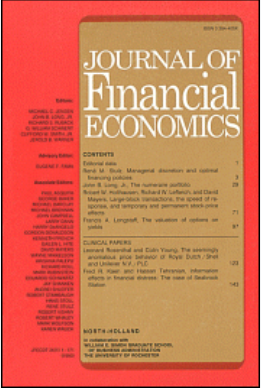重新部署肮脏资产:环境的影响
IF 10.4
1区 经济学
Q1 BUSINESS, FINANCE
引用次数: 0
摘要
本文研究了企业剥离污染资产的能力如何影响企业的污染激励。我的经验设置是一项重大改革,免除购买者对过去污染的责任。使用差异中的差异框架,我发现改革减少了有毒排放,降低了破产风险,并增加了公司价值。横断面测试表明,排放量的下降是由财务状况较差和资产较少的公司推动的。这些发现突出了一种新的净资产渠道:通过限制事后责任,改革提高了土地所有者事前的净资产,减少了他们从事风险行为(如过度排放)的动机。本文章由计算机程序翻译,如有差异,请以英文原文为准。
Redeploying dirty assets: The impact of environmental
This paper investigates how firms’ pollution incentives are influenced by their ability to divest polluted assets. My empirical setting is a major reform that exempts purchasers from liability for past contamination. Using a difference-in-differences framework, I find that the reform reduces toxic emissions, lowers bankruptcy risk, and increases firm value. Cross-sectional tests show that the decline in emissions is driven by firms with weaker financial health and fewer assets. These findings highlight a novel net worth channel: by limiting ex-post liability, the reform enhances landowners’ net worth ex-ante, reducing their incentives to engage in risky behavior, such as excessive emissions.
求助全文
通过发布文献求助,成功后即可免费获取论文全文。
去求助
来源期刊

Journal of Financial Economics
Multiple-
CiteScore
15.80
自引率
4.50%
发文量
192
审稿时长
37 days
期刊介绍:
The Journal of Financial Economics provides a specialized forum for the publication of research in the area of financial economics and the theory of the firm, placing primary emphasis on the highest quality analytical, empirical, and clinical contributions in the following major areas: capital markets, financial institutions, corporate finance, corporate governance, and the economics of organizations.
 求助内容:
求助内容: 应助结果提醒方式:
应助结果提醒方式:


